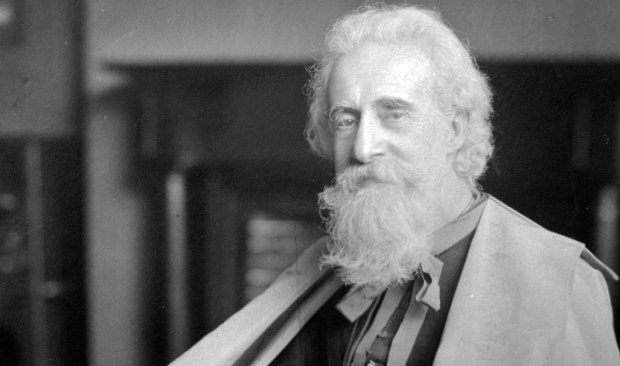Lenten Campaign 2025
This content is free of charge, as are all our articles.
Support us with a donation that is tax-deductible and enable us to continue to reach millions of readers.
A Mass in Romania celebrated by the archbishop of Bucharest this August 31, 2023, marks the 10-year anniversary of the beatification of Vladimir Ghika.
This year is also the 150th anniversary of his birth, and 100th anniversary of his ordination.
In Constantinople on December 25, 1873, in the cold of winter, Princess Alexandrine Moret of Blaramberg gave birth to a son. Her husband was Jean Ghika, a diplomat descended from an illustrious line of reigning princes of Moldavia. The young boy, named Vladimir, picked up from his parents an early inclination for religion while growing up in the Orthodox Church of his baptism. He never ceased to feel the presence of God, from his childhood in Romania to Toulouse, where he grew up in a loving and united family, until the death of his dear father.
Paris and Rome
After high school he went to Paris with his brother Démètre, where they studied together at what has since become Sciences Po Paris. His fragile health forced him to return to Romania for a while. He studied law before going to Rome, where he obtained a doctorate in theology.
“I will go wherever the love of God leads me,” he wrote, “and I will try to make sure that he is the one I serve first, the strongest, and the best.”
It was in the heart of the Eternal City, in the church of Santa Sabina, that he joined the Catholic Church on April 13, 1902, professing a faith that did not go against that of his baptism.
"I am not what you would call a convert. I have been a Catholic at heart and I had to wait until I was given the opportunity to enter officially through the main door, that's all.”
Son of the Orthodox Church turned Catholic priest
It was not until 20 years later that Vladimir Ghika embraced the priestly vocation when he was ordained for the Diocese of Paris on October 7, 1923. The ceremony took place at the Lazarist chapel on Rue de Sèvres, in front of the relics of St. Vincent de Paul, whose example he admired. That same year, he regularly visited the Maritains, who were bringing together at their house in Meudon a veritable cenacle of Catholic intellectuals. There, Paul Claudel, Francis Jammes, Louis Massignon, and François Mauriac became his friends.

His ministry
Assigned to the diocesan parish for foreigners, now St. Ignatius, he went to Villejuif, where poor workers, vagrants, ragpickers, and beggars were crammed into slums. Following the example of Charles de Foucauld, Vladimir Ghika was finally able to fulfill his vocation as a missionary to the poorest of the poor. When his health no longer allowed him to continue this exhausting apostolate, he took to the roads again. He criss-crossed the globe and gave testimony before the great of the world. He carried with him a relic of the Passion, and his intercession for the sick obtained many miracles of healing even during his lifetime.
When the war broke out, Vladimir finally joined his younger brother, who had become a diplomat like their father, in Romania. In Bucharest, he heard confessions, visited lepers, preached, accompanied the lost, and converted hearts without respite. When in 1945 the Communists succeeded in infiltrating the Romanian secret service, part of which was assigned to surveil the Church, Fr. Vladimir Ghika became a target. While he had the opportunity to flee his country to find refuge with his brother in Geneva, he did not hesitate to stay with the flock that had been entrusted to him. The vise tightened around Christians and the arrests multiplied, as did the trials of those accused of espionage.
Martyr of the faith
When the threat against him became imminent, Vladimir went to confession, only to be arrested a few hours later and subjected to a sham trial. In the end he was sentenced to “three years in prison with a strict regime for complicity in crime and high treason.” He was deported and then tortured, beaten, and deprived of sleep and food. Still, he didn’t give up any information that could’ve compromised his friends.
In the hell of the labor camp, he preached, heard confessions, celebrated Mass clandestinely, and told the prisoners about his numerous trips to make them forget the misery of this existence. In 1954, he finally succumbed to the ill treatment inflicted on him, never ceasing to implore forgiveness for his tormentors.
“One suffers in proportion to one's love," he explained. “The power to suffer is in us the same as the power to love.”
Declared blessed and a martyr of the faith on August 31, 2013, he is now celebrated on May 16. He left us with this edifying gospel advice of justice and charity: "Whoever strips himself for the sake of others is clothed with Christ."










